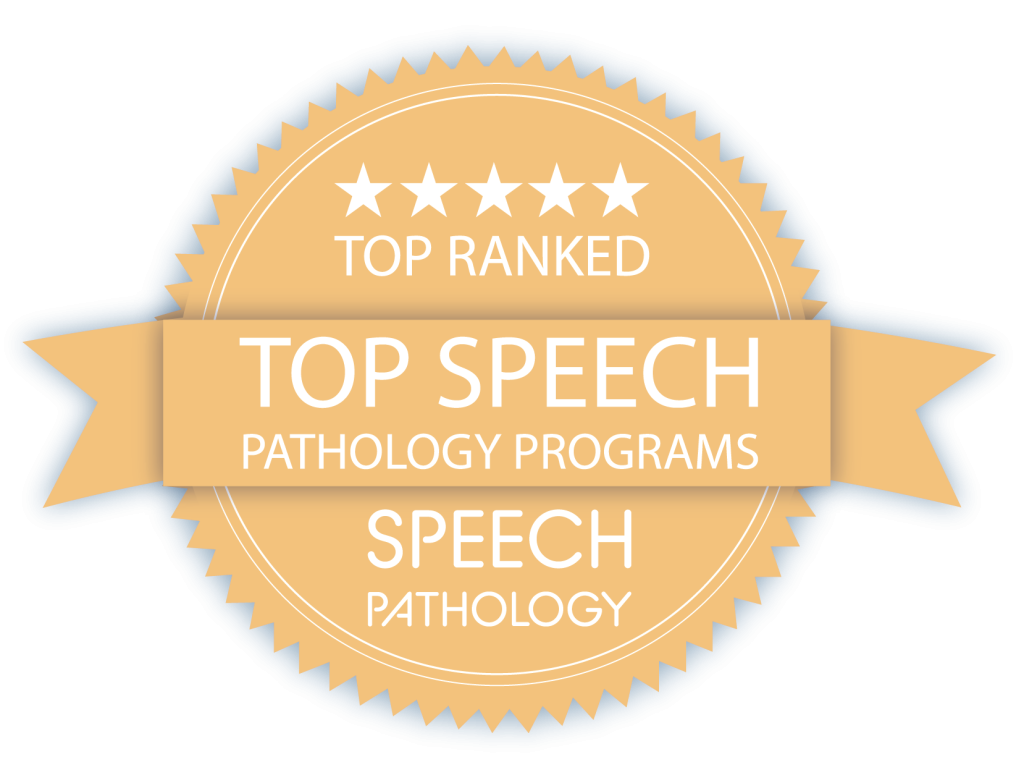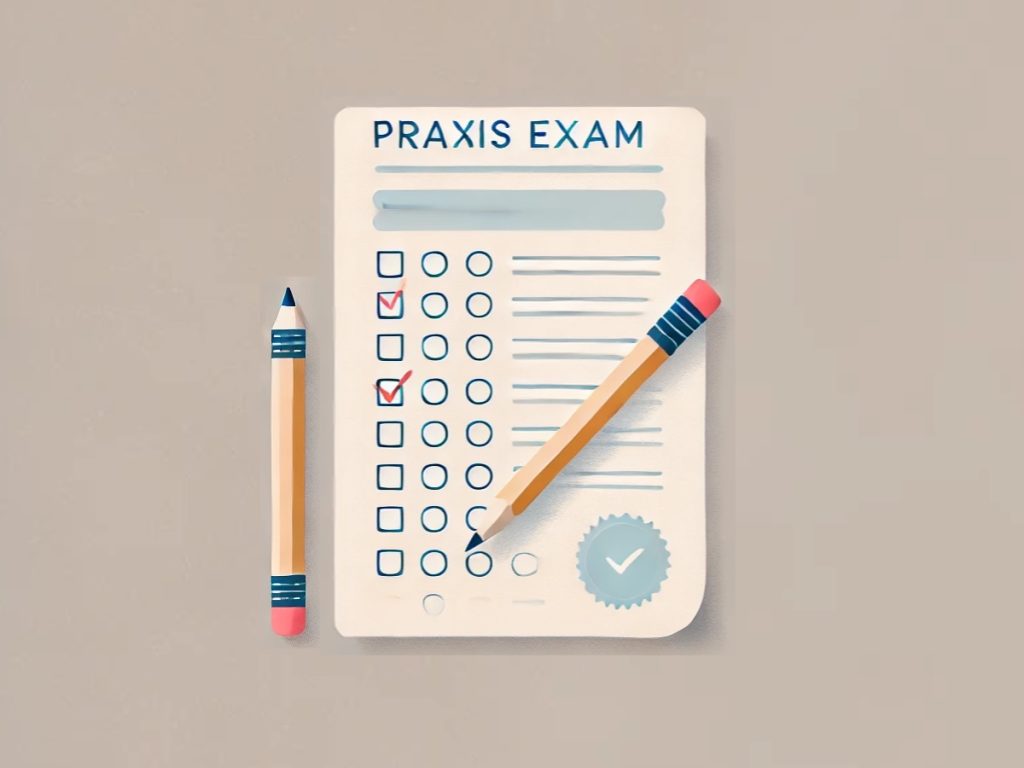Last Updated
April 14, 2025Written By
Alexandra Turner, M.A., CCC‑SLPSpeech-language pathology students in Minnesota are fortunate to have several quality and accredited graduate programs to choose from, including the University of Minnesota – Twin Cities, Minnesota State University Mankato and other institutions within the Minnesota State system. These master’s programs are accredited and have strong clinical practicum experiences; they are typically two years in length, though MSU Moorhead has a more compacted time frame of five consecutive semesters. The University of Minnesota – Twin Cities is known for its interdisciplinary Speech-Language-Hearing Sciences program and aspiring SLP professionals who already hold a master’s and want to pursue a research trajectory can go for a PhD here.
Despite the fact that there is currently no in-state Doctor of Speech-Language Pathology (SLPD), Minnesota SLPs can enroll in accredited online speech pathology programs or hybrid SLPD options available nationally. The employment rate is increasing particularly in Minnesota due to the growing demand for SLPs in schools and healthcare facilities. SLPs in the state earn $85,000-$90,000; more in large healthcare systems like Mayo Clinic, or in metro area districts. Minnesota has a solid education system, attractive wages and a high standard of living, making it a good choice for future speech pathologists who want to work in accredited degree programs and good career outcomes in return.

Choosing the right SLP program in Minnesota just got easier. Our rankings focus on what truly matters—outcomes, clinical training, and academic quality. speechpathology.org helps speech pathology students in Minnesota compare the best schools. Find out how we rank them at speechpathology.org/rankings-methology.

Minneapolis, MN - Public 4-Year - twin-cities.umn.edu
Campus Based - Visit Website
The University of Minnesota-Twin Cities offers a Master of Arts in Speech-Language Pathology, a CAAA-accredited program designed to equip students with the skills needed for professional practice in communication disorders. This residential graduate degree emphasizes serving diverse client populations, with a unique opportunity to specialize through the Diversity in Communication Specialty Program. The program stands out for its comprehensive training in speech and hearing services, preparing graduates to meet the needs of varied communities. Highlights include a focus on diverse client populations, a specialty diversity program, and comprehensive communication services training.
Campus Based - Visit Website
At the University of Minnesota-Twin Cities, the PhD in Speech-Language-Hearing Sciences is tailored for future scholars, offering a robust research foundation in speech-language pathology and audiology. This program encourages interdisciplinary studies, allowing students to delve into areas like psychology, child development, and cognitive sciences. Prospective students are advised to connect with potential mentors early. Graduates have gone on to achieve notable success in academia, clinical settings, and research, supported by a prestigious alumni network. Key features include flexible interdisciplinary coursework, a strong research foundation, and diverse career opportunities post-graduation.
Saint Paul, MN - Private 4-year - bethel.edu
Campus Based - Visit Website
Bethel University's Master's in Speech-Language Pathology stands out for its commitment to preparing students for impactful careers in treating communication and cognitive disorders. The program, under the guidance of faculty such as Jayanti Ray, PhD, CCC-SLP, combines rigorous academic coursework with hands-on clinical practice and research opportunities. A unique aspect is its focus on community service, enriching students' learning experiences. With admissions designed for flexibility, the program caters to a wide range of applicants. Highlights include a strong emphasis on real-world application and preparing graduates for diverse career paths. 'Requires GRE' for admission, reflecting its high standards.
Mankato, MN - Public 4-Year - mnsu.edu
Online & Campus Based - Visit Website
Minnesota State University-Mankato's Master of Science in Communication Sciences and Disorders stands out for its hybrid delivery, combining online coursework with in-person clinical experiences. This CAA-accredited program emphasizes cultural competency and diversity, preparing students to address communication disorders across varied populations. With a curriculum that spans 52 graduate credits, it meets licensure standards and offers a post-baccalaureate pathway. The program requires a 3.00 GPA for admission and boasts a February 1st application deadline. Its focus on evidence-based practice and inclusive healthcare delivery ensures graduates are well-equipped for professional practice. Requires GRE.
Moorhead, MN - Public 4-Year - mnstate.edu
Campus Based - Visit Website
Minnesota State University Moorhead's Master of Science in Speech-Language Pathology is a CAA-accredited, five-semester program that equips students with the skills to diagnose and treat communication disorders. With a 100% employment rate and a 98.6% Praxis exam pass rate, the program stands out for its practical approach, including hands-on training at the Speech Language Hearing Clinic. It offers access to cutting-edge technology and diverse clinical experiences, preparing graduates for successful careers in speech-language pathology. Admission details and deadlines are clearly outlined for applicants. 'Requires GRE'.
Saint Paul, MN - Public 4-Year - metrostate.edu
Concentration: Bilingual (Spanish-English) service delivery - Campus Based - Visit Website
Metropolitan State University offers a Master of Science in Speech-Language Pathology with a unique concentration in Bilingual (Spanish-English) service delivery. This 69-credit program is designed to equip students with the skills to assess and treat communication and swallowing disorders, emphasizing cultural competence and evidence-based practices for diverse populations. The curriculum includes extensive clinical practica and interprofessional education, preparing graduates for effective service in multilingual settings. Admission prerequisites include a bachelor's degree with a 3.0 GPA, specific coursework, and 25 observation hours with a certified SLP. Highlights include a focus on bilingual service delivery, diverse clinical experiences, and a culturally responsive curriculum.
Campus Based - Visit Website
The Master of Science in Speech-Language Pathology at Metropolitan State University of Denver is a 69-credit program that prepares students for professional certification through rigorous coursework and clinical practica. While offering an optional bilingual Spanish-English concentration, the program is tailored for urban diversity, emphasizing cultural responsiveness and evidence-based practice. Admission requires a bachelor's degree with a 3.0 GPA and prerequisite coursework in communication sciences. Program highlights include a candidate status for CAA accreditation, a variety of elective options, and a curriculum designed to meet the needs of diverse populations through interprofessional education and clinical experiences.
Saint Cloud, MN - Public 4-Year - stcloudstate.edu
Campus Based - Visit Website
Saint Cloud State University's Master of Science in Communication Sciences and Disorders is a CAA-accredited program designed to equip students with the skills needed for a successful career in speech-language pathology. With a curriculum that includes extensive clinical practicum experiences, the program boasts a 100% pass rate on the Praxis exam, ensuring graduates are well-prepared for licensure in Minnesota. The program is structured into two phases to accommodate students from diverse academic backgrounds, requiring a minimum of 33 credits for Phase I and 49 for Phase II. Admission is highly competitive, based on GPA, professional experiences, and recommendations, with a January 15 deadline for fall entry. Financial aid and graduate assistantships are available to eligible students. The program emphasizes preparation for ASHA certification and offers guidance for state licensure, with all coursework delivered on-campus. 'Requires GRE'
If you are looking for Speech Pathology programs in Minnesota, there are two primary paths: bachelor degree and master degree. The University of Minnesota – Twin Cities and Minnesota State University Moorhead are example schools that offer a bachelor’s in Communication Sciences and Disorders, which provides a good grounding in speech, language and hearing science. This level of admissions generally comprises a reasonable high school GPA, a desire to assist people, and possibly standardized test scores.
With just a bachelor’s degree in Speech-language pathology, you may find that there are limited job opportunities. However, it is not impossible to start your career as a Speech-Language Pathology Assistant (SLPA) or in similar support positions. You may find these support positions in early childhood education, special education or healthcare administration.
If you are wanting to have more responsibility than a support position, you will need to become a licensed SLP. In Minnesota, this requires a master’s degree in Speech pathology from an accredited program. You can get your master’s degree from Minnesota State University Mankato or University of Minnesota – Duluth, among others. Graduate admissions are based on a SLP bachelor’s degree or related undergraduate major with prerequisite courses, solid grades, letters of recommendation, and possibly the GRE.
At public universities, master’s programs are more intensive and range from $580 to $600 per credit, but the payoff is significant: Licensed SLPs in Minnesota earn $85,000-$90,000 annually. From the bustle of urban centers to the community-focused rural regions, Minnesota’s solid academic offerings combined with a growing job market make it an attractive option for anyone interested in communication and care.
Minnesota offers a Ph.D. in Speech-Language-Hearing Sciences at the University of Minnesota – Twin Cities, but does not currently host an in-state SLPD program. For those driven by research, university-level teaching, or high-level policy work, choosing a PhD path is typical. Admissions are typically for students with a master’s in SLP (or its equivalent) and high academic achievement and research experience; however, some candidates may be admitted post-bachelor’s with additional coursework.
Assistantships are frequent sources of funding for PhD students, which cover not only tuition but also other living expenses. They can work as faculty members, principal investigators in clinical research labs, or directors of advanced speech pathology programs and get competitive salaries that can be well over $90,000 depending on the level of academia or major healthcare organizations.
An SLPD, on the other hand, focuses on advanced clinical practice, leadership, and applied research. If your local universities don’t offer this credential, speech-language pathologists can enroll in online SLPD programs from schools across the country. SLPD students often complete part-time study while working, with programs spanning two to three years. This path can lead to higher-level clinical administration roles, private practice expansion, or specialized service delivery. The annual salaries of SLPD-holders are typically higher than those of master’s-level clinicians and may match mid-career PhD earnings.
There are a few certain steps that are needed in order to earn and keep the speech-language pathology licensure in Minnesota. First, you need to have a master’s or doctoral degree from an accredited SLP program, which will prepare you to practice with at least 400 clinical hours (25 hours of observation and 375 hours of direct patient contact). You also must pass the Praxis exam in Speech Pathology, which will assess your knowledge in the areas of speech and language disorders, swallowing, ethics and others.
When you graduate, some new clinicians choose to do a Clinical Fellowship (CF), which is supervision for about 36 weeks. There is a temporary license that Minnesota issues for this phase to help you get the necessary real world experience before you are fully licensed.
If you want the gold standard, the Certificate of Clinical Competence (CCC) from the American Speech-Language-Hearing Association (ASHA) – its requirements are almost identical to the permanent license. Although it is not always required by all employers it can increase your value and worth. Your permanent Michigan speech pathology license can be renewed every two years by showing continuing education credits; many courses, workshops and seminars are acceptable for these. Continuing professional development (CPD) or CEUs are not only important to keep you licensed, but also to keep you current as the profession develops. Complying with these steps whether you are practicing in a school, clinic or hospital ensures you are prepared to add quality SLP services to Minnesota communities.
If you are hoping to speed through your academic journey in speech-language pathology, several flexible paths are offered by Minnesota. The first step is to get your bachelors degree from a university like University of Minnesota or Minnesota State University Mankato. These degrees are four year programs, but you can expedite that process by taking summer classes or transferring in credits.
On the other hand, the usual master’s in SLP, required for licensure, is five to six semesters, or two to two and a half years of full time study; however, some programs, including the University of Minnesota’s M.A. in Speech Language Hearing Sciences can be completed in two years if you have the necessary prerequisites. The journey to a PhD in Communication Sciences and Disorders is typically three to five additional years after the master’s, depending on research requirements.
Combined bachelor’s-to-master’s tracks aren’t always advertised, but some institutions may permit undergrads to take graduate courses early, reducing the total time by a semester. SLPD programs (Doctor of Speech-Language Pathology) are not currently common in Minnesota, so students interested in that clinical doctorate may look out of state or to online speech pathology programs. Hence, the amount of time it takes you to progress depends on course load, clinical hours and personal scheduling, while keeping Minnesota’s SLP programs flexible yet thorough.
| School Name | Highlights | Retention & Grad Rates |
|---|---|---|
| University of Minnesota-Twin Cities |
|
|
| Bethel University |
|
|
| Minnesota State University-Mankato |
|
|
In terms of affordabile speech pathology degrees, public universities in Minnesota are often the best value for your money if you plan on becoming a speech-language pathologist. If you are just starting in the field and in need of a Communication Sciences and Disorders bachelor’s degree, the costs are $300-$400 per credit in-state at places like Minnesota State University Moorhead or St. Cloud State University. That can result in significantly lower overall tuition than private colleges, if you include scholarships or financial aid.
When you progress to a master’s program – needed for full SLP licensure – Minnesota schools like MSU Moorhead, MSU Mankato, and St. Cloud State typically have tuition rates of $580-$600 per credit for Minnesota residents, which is still fairly priced comparatively to the national level. The University of Minnesota – Twin Cities may have higher tuition (around $9,990 per semester), but it also has a good program with strong research emphasis. For students planning to pursue a PhD in Speech-Language-Hearing Sciences at the University of Minnesota, the cost can be covered by assistantships and fellowships that provide tuition remission and a stipend in addition to the scholarship.
The state doesn’t currently have a Doctor of Speech-Language Pathology (SLPD) program, but many Minnesota based speech pathologists complete SLPD online through other universities. Based on in-state tuition, financial aid, and future earning potential, Minnesota’s public colleges are still a smart choice for SLP students on a budget.
| School Name | Highlights | Annual Estimated Tuition & Fees |
|---|---|---|
| Saint Cloud State University |
|
|
| University of Minnesota-Twin Cities |
|
|
| Minnesota State University-Mankato |
|
|

If you are interested in pursuing a career in SLP and have been researching licensing requirements or are simply interested in learning more about SLP

If you have ever been researching speech-language pathology careers and come across the words ‘speech pathologist’ and ‘speech therapist’, you might wonder if they are

If you are pursuing the position of a speech-language pathologist, then you may have heard of the Praxis exam from your professors, classmates, or even
Our mission is to empower future speech-language pathologists by providing the most accurate, up-to-date, and accessible information available. Our team is dedicated to guiding individuals through the journey of becoming an SLP—whether you’re just exploring the field or actively pursuing a degree. We specialize in delivering reliable insights on state-by-state availability, affordability, and the fastest paths to certification and licensure. Our goal is to help you make informed decisions based on real data, trusted resources, and the evolving needs of the profession. With a strong commitment to educational clarity and career transparency, we’re here to support and simplify your path toward a rewarding future in speech-language pathology.
PLEASE NOTE: The contents of this website is for informational purposes only. All trademarks are the property of their respective trademark holders.